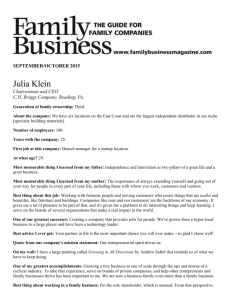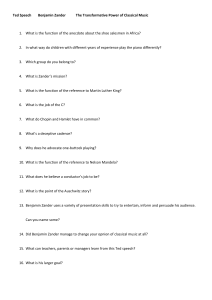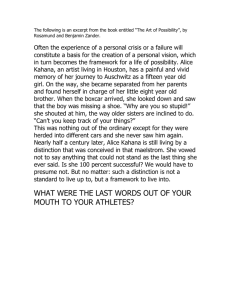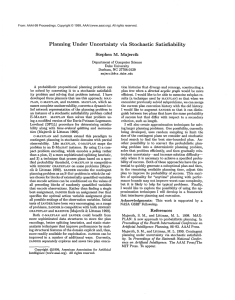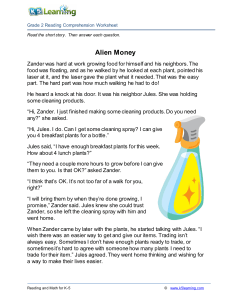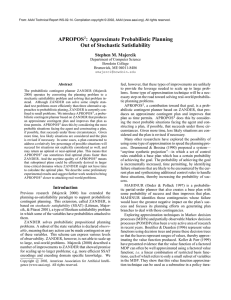Practical Leadership – 15.974
advertisement
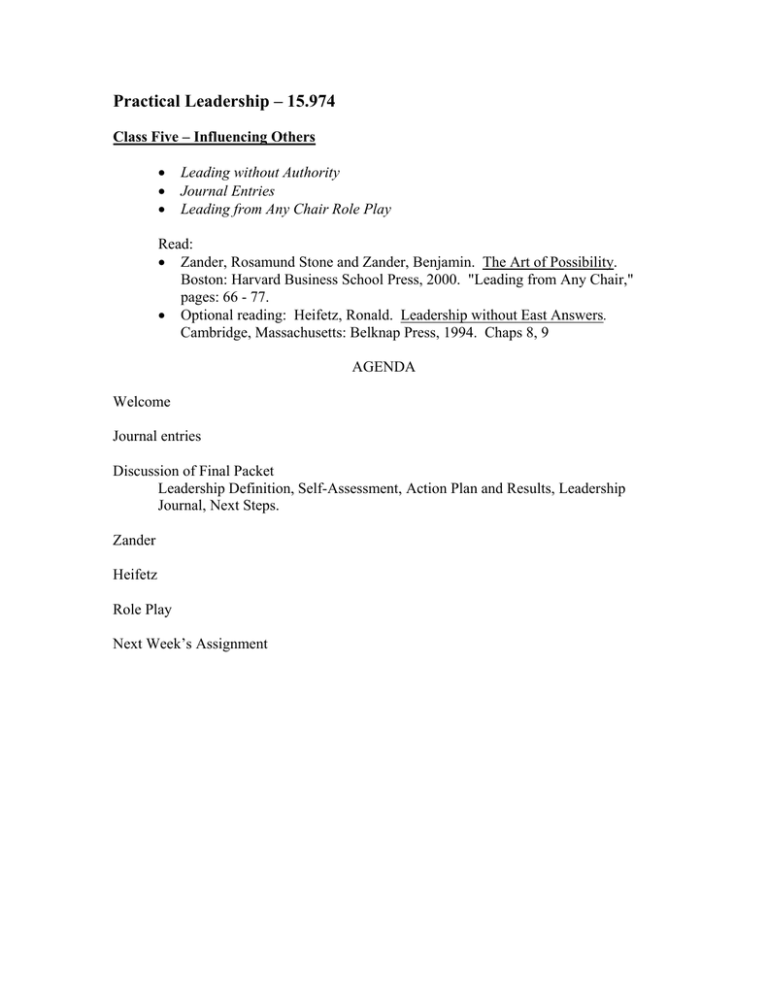
Practical Leadership – 15.974 Class Five – Influencing Others • • • Leading without Authority Journal Entries Leading from Any Chair Role Play Read: • Zander, Rosamund Stone and Zander, Benjamin. The Art of Possibility. Boston: Harvard Business School Press, 2000. "Leading from Any Chair," pages: 66 - 77. • Optional reading: Heifetz, Ronald. Leadership without East Answers. Cambridge, Massachusetts: Belknap Press, 1994. Chaps 8, 9 AGENDA Welcome Journal entries Discussion of Final Packet Leadership Definition, Self-Assessment, Action Plan and Results, Leadership Journal, Next Steps. Zander Heifetz Role Play Next Week’s Assignment Zander, Rosamund Stone and Zander, Benjamin. The Art of Possibility. Boston: Harvard Business School Press, 2000. "Leading from Any Chair," pages: 66 - 77. Insight – NOT how good am I (how well does the audience like my interpretation), but how effective am I at enabling the musicians to play each phrase as beautifully as they are able. How translate for business? Leaders remove obstacles – A leader can sit in any chair – listening passionately and with commitment. Able to lead the section, the orchestra, wherever you sit. Being an active participant. Regardless of formal role. 11th cello high school stand partners in Cuba How translate for business? Be so engaged that you could be/are the leader How much greatness are you willing to grant people? Do you see them jaded and disaffected? Or bursting with talent and joy? The conductor who listens for passion and commitment How translate for business? How do you motivate people? Heifetz, Ronald. Leadership without East Answers. Cambridge, Massachusetts: Belknap Press, 1994. Chaps 8, 9 Leadership without Authority • Provide the capacity within the system to see through blindspots of the dominant viewpoint • Possible on a variety of scales – from the junior staff member who makes a difference in a weekly meeting to Martin Luther King Jr (civil rights). L’ship with Authority Top Dog ID challenge (Sensemaking) Regulate distress – control environment. Define the process Focus on relevant issues. Shift responsibilities to stakeholders Access to breadth of info L’ship without Authority wide range – from those operating on the margins of a group to someone with senior levels of authority who is going beyond his/her scope ID challenge – may have different values. Therefore may have different reality • Is the distress. Doesn’t have to regulate distress. Can raise questions that disturb. Have a latitude for creative deviance • CAN modulate the provocation • No/little control of environment. MUST place the issue in the existing context. Must use the available holding vessel. (doesn’t have formal authority to shape the holding environment ) • MUST have educative strategy. In order to make progress on adaptive problem must provide others with info on issue, possible solutions, the other points of view Is the embodiment of the key single issue. Can become lightening rod – killing the messenger. Mobilize stakeholders. The issue is to garner additional leverage, increase the base of supporters Has access to frontline information (formal auth has breadth of knowledge; informal auth has closeness to raw and relevant detail) Are the voices of the missing point of view. Civil disobedience Protect voices of missing point of view Choose the Decision making Respond to Decision Making process process Little constraints – people have no expectations of you L’ship is constrained – people expect you to solve the problems
